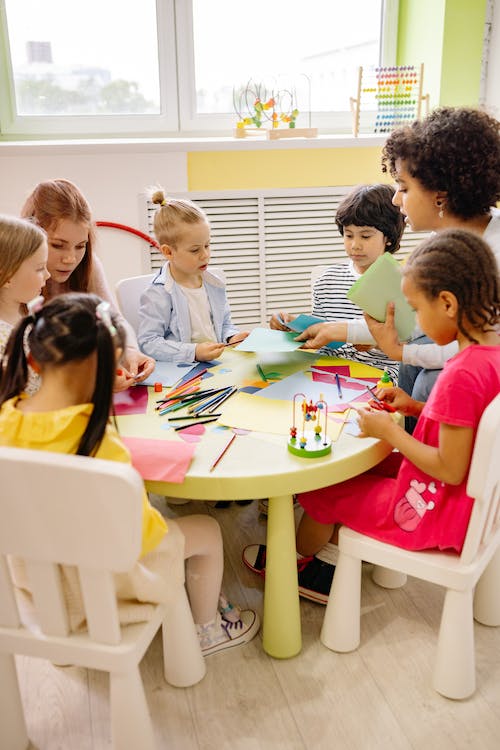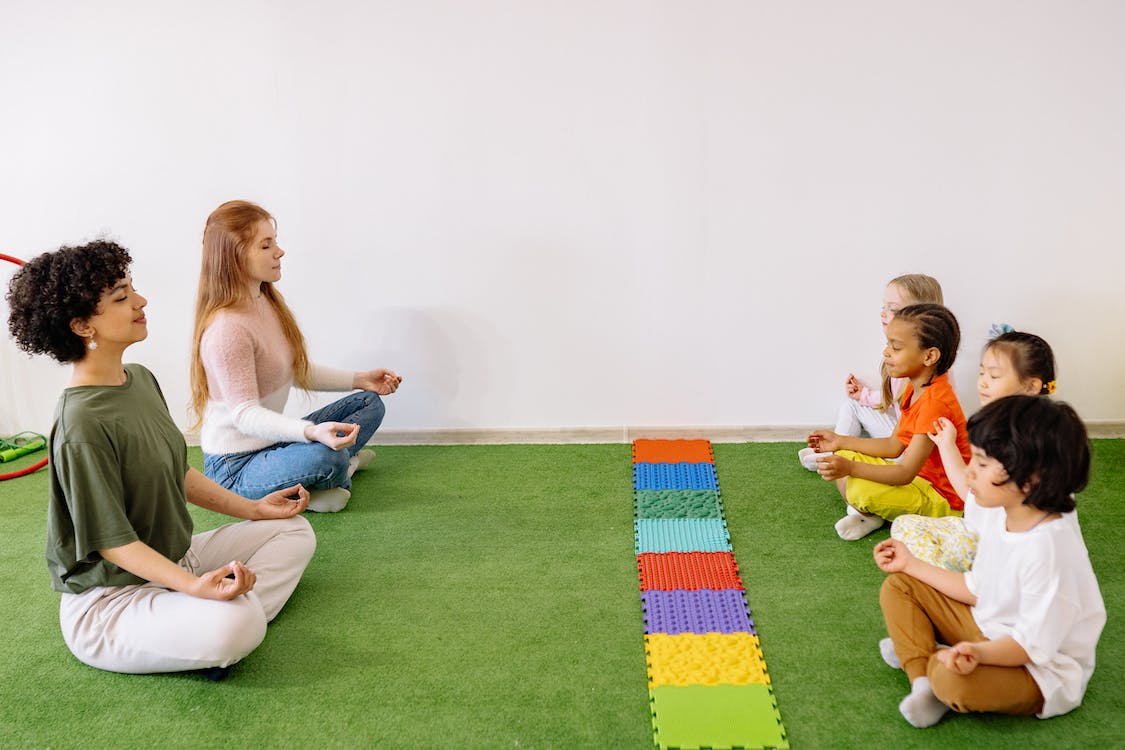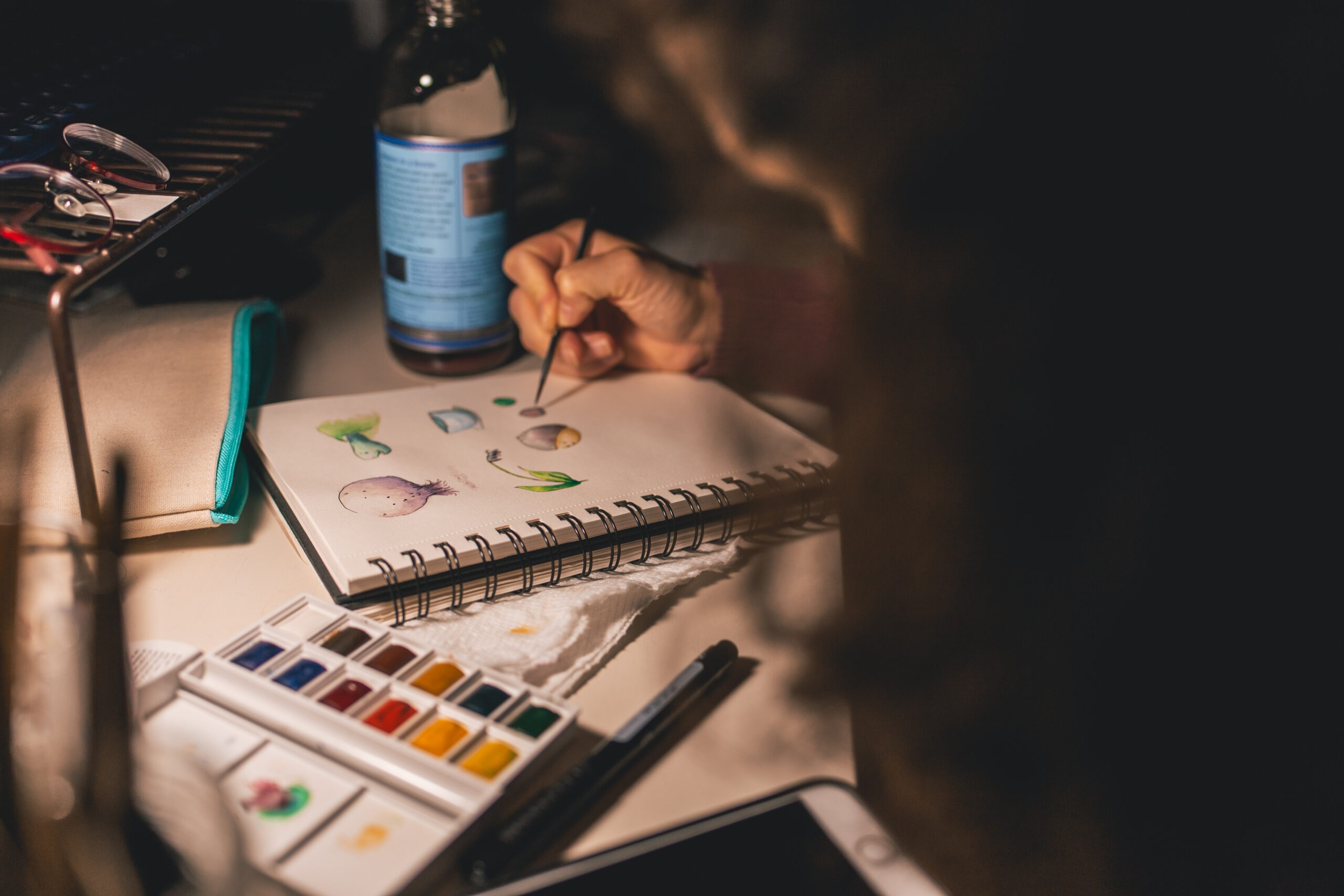Introduction
The general lack of interest in anything educational among kids today is a problem that frequently arises. Since many children need to recognize the connection between their assignments and their hobbies, many parents struggle to motivate them to concentrate and finish all their schoolwork. However, motivating the child’s natural motivation to study requires more innovative approaches than simply setting the youngster down and tracking whether their homework is done. To encourage students to pursue their academic work, which also requires them to think, a good strategy would involve them in various hobbies and mind-stimulating activities.
What is a Hobby?
A hobby is a happy-making leisure activity that you enjoy doing. Common hobbies include things like collecting stuff, taking part in sports or other activities, and working on creative projects. When you actively pursue something outside of work hours, you are engaging in a hobby. You devote your time and attention to your activity since you love and are enthusiastic about it. A hobby is frequently a continuing activity that you may commit to regularly. A long list of interests and pastimes constantly evolves as tastes and trends shift. Hobbies can infuse energy and pleasure into life, enriching it. If you still need to discover the ideal activity, keep looking.
According to research, educational hobbies can help you guard against addiction and keep your brain in top condition. According to experts, even brief educational initiatives can assist the brain in changing its reward system to prevent addiction. In other words, by continuing to pursue educational hobbies, including some of the ones listed below, you can enrich your life in various ways.
1. Educational Hobbies for Enrichment
Learning a new language or how to play an instrument are also examples of enrichment educational hobbies. The two most typical are reading and writing. These two pastimes have a lower entry threshold, which is fantastic. Reading and writing skills are typically learned early in our educational development, so they might come naturally and are less likely to strain the brain than studying music or a foreign language. Even so, mastering these two skills can be tricky, but as long as you keep pushing yourself, you can succeed.
2. Creative Educational Hobbies
You can learn more things by creating something, sometimes more than you imagined. Being creative is terrific because it deviates from established norms of excellence. Whatever craft you’re trying to master, you’re free to experiment and make mistakes. The skill of creating an eBook cover for a platform has been popular recently. It is becoming more and more significant as books are distributed to readers instead of print publications. Working with graphic design software, content management systems, various file kinds, and cooperation are necessary to develop an eBook cover. One artistic endeavor may educate you on a wide range of skills and give you the self-assurance to find your voice or style. According to List Plan It, you might also want to attempt ceramics, drawing, photography, crafting jewelry, cross-stitching, and scrapbooking.
3. Collecting Educational Stuff
You might be surprised to learn that collecting things like wartime souvenirs, comic books, or antiques has a greater educational purpose than you might realize. It also helps you build the research skills you’ll need for college. As you go down this road, whether collecting coins, sports cards, or [insert hobby item here], you’ll discover that discovering the background of one subject that interests you can open several further opportunities for learning. Try collecting home goods, postcards, or family history data, as these hobbies are also excellent for learning.
4. Educational Outdoor Hobbies
You should consider leaving the books and going outside to advance your education. There are several outdoor pastimes that you can engage in that will teach you skills that you can utilize in the classroom. Three pastimes that put you in contact with nature and allow you to observe how your world functions rather than merely reading about it are hiking, birdwatching, and fishing.
5. Musical Hobbies
The popularity of musical interests is for good cause. They are excellent for lowering stress levels, building a sense of community, and learning new skills. Because music and language are related, playing an instrument can benefit your brain in numerous ways, including helping you learn a new language. Playing music can provide an excellent, calming release while exercising creativity and memory. Music training has been demonstrated to improve long-term memory and brain function in humans by reducing the risk of dementia. Since hanging out with pals while jamming is so much fun, playing an instrument can also have significant social benefits.
Educational Activities to Stimulate the Mind

Here are some fantastic educational hobbies you can take up right now, either for yourself or to introduce your child to fun learning activities. Hobbies are a great way to have fun in your spare time and get away from the typical grind of responsible life.
1. Playing Board Games and Solving Puzzle
One of the best ways to use your active thinking abilities is to play board games like chess or Monopoly or finish puzzles like crosswords. Both activities demand that you actively plan your approaches and answers to the issue. Still, they also give you a concrete, immediate objective to work toward: winning. However, when seeking a fun approach to using your thinking skills, you should be open to more than just board games or puzzles. Alternatives like video games and videos are acceptable if the material requires analytical or strategic thought.
2. Blogging
Most individuals find blogging to be a highly fascinating pastime. Most people find this pastime terrific for de-stressing, but it’s also a fantastic hobby for mind-expanding. Being a successful blogger requires research, so when you look for things to write about, you’ll likely find yourself delving further and farther into them to ensure your posts are insightful and accurate. Additionally, it aids in developing excellent language abilities that might enhance your career. While you might not be able to make a living blogging, you might discover that developing your vocabulary, finding fresh ways to express yourself, and exploring ideas makes you a better communicator in work environments.
3. Traveling and Sightseeing
It’s fascinating to go to well-known locations and other exciting locations, especially when you’re doing it with a group of friends. It is worthwhile to put money aside in order to afford and preserve memories of destinations like the Egyptian pyramids, the Taj Mahal in India, and the Eiffel Tower in France. With sightseeing, there’s always something new to discover about the background and origins of the location you’re visiting. For instance, even though we have read about the Taj Mahal story, there is a certain validity to hearing it directly from the story’s caretakers.
4. Crafts and the Arts
Hobbies in the arts and crafts category span widely, from crocheting and diamond painting to felting and origami. Kids love it also because there is so much they can do and create in this creative realm that they will never tire. Additionally, engaging in arts and crafts has various positive effects, including stress reduction, increased empathy, confidence-boosting, and management of emotions and self-expression.
5. Pottery
The idea of molding clay with your hands to make something beautiful from nothing is incredibly gratifying. The phase where you get to paint your clay masterpiece is even more enjoyable. This pastime is more enjoyable and calming in a ceramic studio or café in groups. Pottery will help you to unleash your creativity and have no boundaries. It helps you stay on task until it is finished. You learn to stick with it and be patient until the task is completed. Regardless of how often you stumble, you can always get back up and keep moving forward.
The Benefits of Having a Hobby

The ability to effectively release tension is one of the main benefits of having hobbies for students. High levels of stress are frequently experienced by students, whether because of personal difficulties, academic pressures, or other circumstances. After a long day of courses or studying, taking up a pastime can offer a much-needed diversion from these pressures and aid students in unwinding. Students can take care of their physical and emotional health by engaging in hobbies as self-care.
1. Builds Confidence
Being proficient and successful feels terrific. And it is this that gives you a sense of assurance.It could take some time to master your passion to the point where you can show off your talent. The act of doing your activity, however, is incredibly rewarding in and of itself. Which activity you do today is immaterial because there are so many options. Whether you enjoy puzzles, chess, gardening, crafts, sports, or developing your skills, your activity should be both a passion and a diversion. Additionally, if your hobby gives you a feeling of purpose, you’ll be more motivated to take on challenges and better prepared to pick up new abilities at work.
2. Reduce Boredom and Stress
The de-stressing effect of hobbies is an undeniable argument for their importance. The pressure is temporarily lifted when one indulges in something they love for a few hours; it serves as a break or a portal to another planet. The resulting happy hormones prevent depression, treat boredom, encourage mindfulness, and revitalize the student to continue with daily monotony. Thus, a hobby is a mental getaway from the demanding to-do list at work or school. Hobbies bring excitement, passion, and enjoyment, which are great for mental health and promote eustress, or pleasant stress.
3. Promotes Socialization
Your ability to interact with others through hobbies may be an extra boost to your general wellbeing. You can connect with people who have similar interests to your own. You may socialize, talk about your interests, and expand your network, enabling you to transform your pastime into a career. The internet offers various forums and groups to meet people who share your interests.
4. Strengthening of Creativity
Even basic tasks like collecting leaves or stitching require a lot of creativity. The arrangement of leaves and the stitched patterns on a piece of cloth demand the ability to plan and organize pleasingly. A person with a hobby is also likely to be entertaining, have a good recall, and have a notable appreciation for any activity’s aesthetic and spiritual aspects. These traits can be added to the list of benefits above. When combined with inventiveness, these abilities offer additional advantages to hobbies.
5. Promotes Mental and Emotional Wellbeing
Hobbies promote focus, concentration, and a student’s analytical, logical, decision-making, and problem-solving skills. They also give students a sense of control and mastery, boosting their self-esteem and making them feel accomplished. Hobbies are vital to developing a better version of oneself, faith in oneself, and confidence. An excellent method to have confidence in one’s talents and focus on personal improvement is to achieve goals and targets one set for oneself. One further advantage of hobbies is the teaching of mindfulness, which helps students focus, stay in the now, and integrate their minds and body.
Tips on Choosing an Educational Hobby
Finding a suitable educational pastime may be enjoyable and rewarding. But it might not be easy to know where to begin with so many possibilities available. The following advice will help you select the ideal educational activity for you:
1. Think about your personality.
To select an educational pastime, you must first consider your personality. Painting, embroidery, or metal detecting are hobbies that can be a good fit for you if you’re patient and prefer to take your time. Conversely, if you prefer fast-paced pursuits, hobbies like dance, running, or basketball can be more appealing to you.
2. Find enjoyable hobbies.
It’s crucial to discover an enjoyable activity while selecting an educational hobby. You’re less inclined to persevere if you’re not having fun. Find pastimes that you find intriguing or engaging. For instance, you might enjoy hiking or birdwatching if you appreciate being outside. You might love historical site visits or genealogy if you’re interested in history.
3. Take into account the educational value.
Finding a pastime you enjoy is crucial, but picking one that will benefit your schooling is equally important. Look for interests that will help you develop new abilities or expand your knowledge of a topic. For instance, if history interests you, you can enjoy learning about nearby historical events or participating in archaeological digs. Astronomy and botany may appeal to you if science is your thing.
4. Start Little
Starting small is crucial when taking up a new pastime. Take your time with a challenging task or talent. As an alternative, start small and progress from there. You’ll gain confidence and prevent frustration by doing this.
5. Set objectives and monitor your progress.
Setting goals may maintain your motivation and concentration on your new pastime. Set attainable goals for yourself, whether you are learning a new skill or a recipe. Observe your development and recognize your successes as you go.
Conclusion
Overall, there are lots of exciting and educational hobbies that can aid in your learning and development. There is undoubtedly a passion for you, whether your interests lie in arts and crafts, learning a new language, reading and writing, logic and crossword puzzles, cooking and baking, gardening, nature, music and performing arts, physical and outdoor sports, or other pastimes.
You can improve your academic performance and personal life by incorporating educational hobbies into your everyday routine. You can improve your general wellbeing and achieve tremendous success in all areas of your life by exploring your passions and learning new skills. Always remember that hobbies should be exciting and fun learning and development methods. Spend time investigating your hobbies to determine the activities most suit you. You can use your hobbies as a valuable tool for career and academic success with some time and effort.


